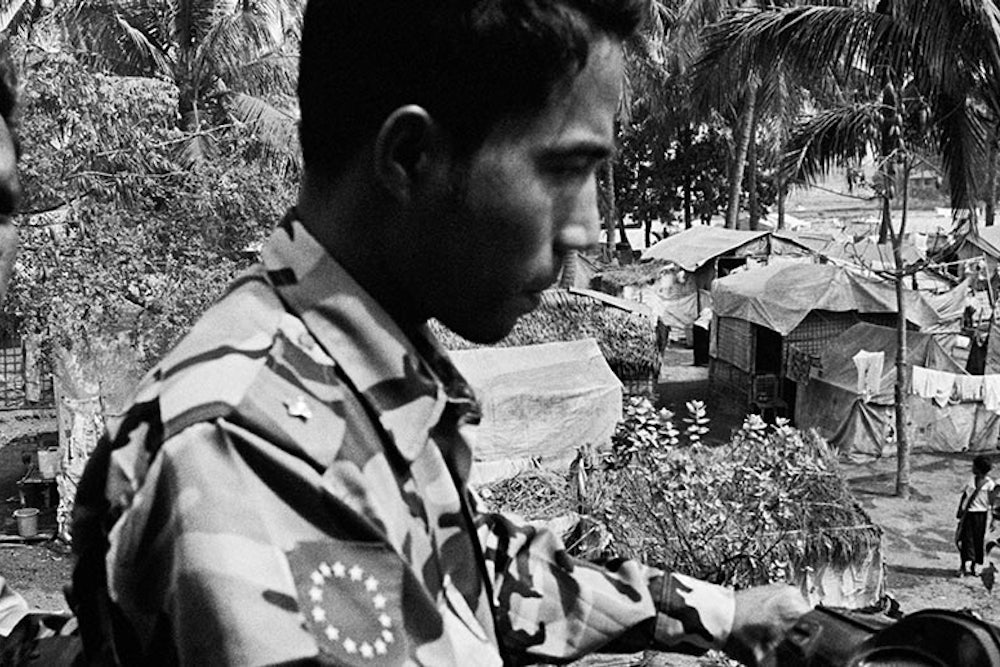The ethnic cleansing in Burma's northwest has followed a jerky rhythm, coming in fits and starts since the first Buddhist-on-Muslim attacks in the middle of 2012. I visited the area for an article in the current issue of the magazine, and found it in a dangerous lull, with many Burmese Buddhists thrilled by the prospect of driving out the remaining Muslims and killing those who resisted.
The lull has broken over the last two weeks, according to reports gathered by a Bangkok-based human-rights group. On January 9, eight Muslims were kidnapped, and soon after, others "discovered a fresh grave with visible body parts." In subsequent attacks, forty Muslims were killed and many more forced from their homes. The Burmese government has responded in part by ignoring the issue: The lead story in a state-run newspaper today is an urgent report about advances in organic farming. When asked directly, government spokesmen are propagating the story that Buddhists are blameless but Muslims murdered a Buddhist policeman on January 14. The implication is that even if the Muslims were attacked, they kinda had it coming.
In the past, the central government of Burma has intermittently played a stabilizing role, for example by averting the 2012 mass burning of Muslim residents of Myebon township after they were rounded up and (the displaced residents told me) sprayed with gasoline. But now, according to the report by Fortify Rights, the state and national government are dealing with the problem in ways that all but ensure more attacks. Police have rounded up Muslim men over the age of ten, prevented Muslims from returning to their homes, and done nothing to stop the anti-Muslim violence they deny happened in the first place. That means the Muslims of Arakan are weaker and more isolated than before, and Buddhists more confident they can sack Muslim villages and murder their inhabitants with impunity.
Ethnic Cleansing Just Went From Bad to Worse in Burma

Greg Constantine